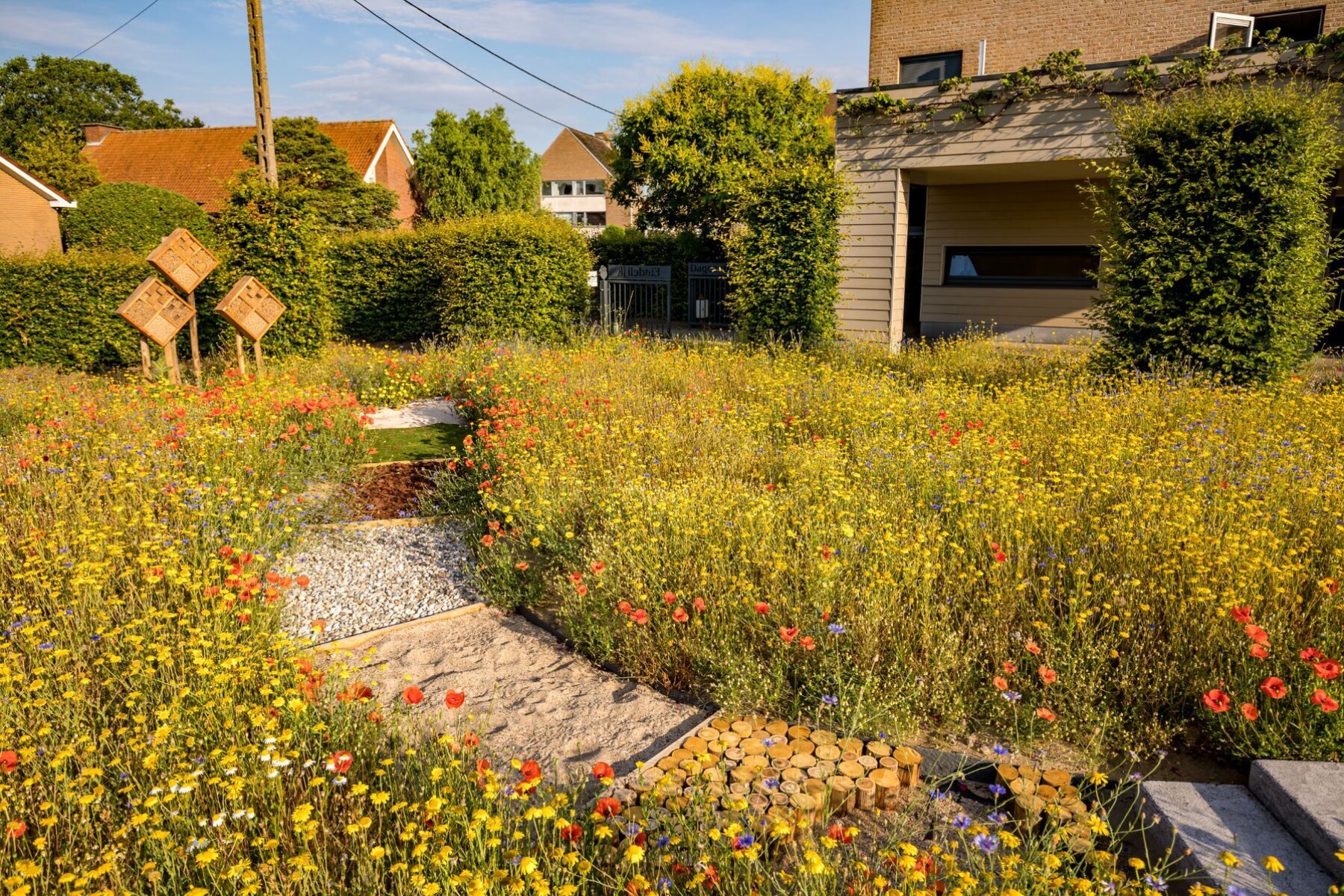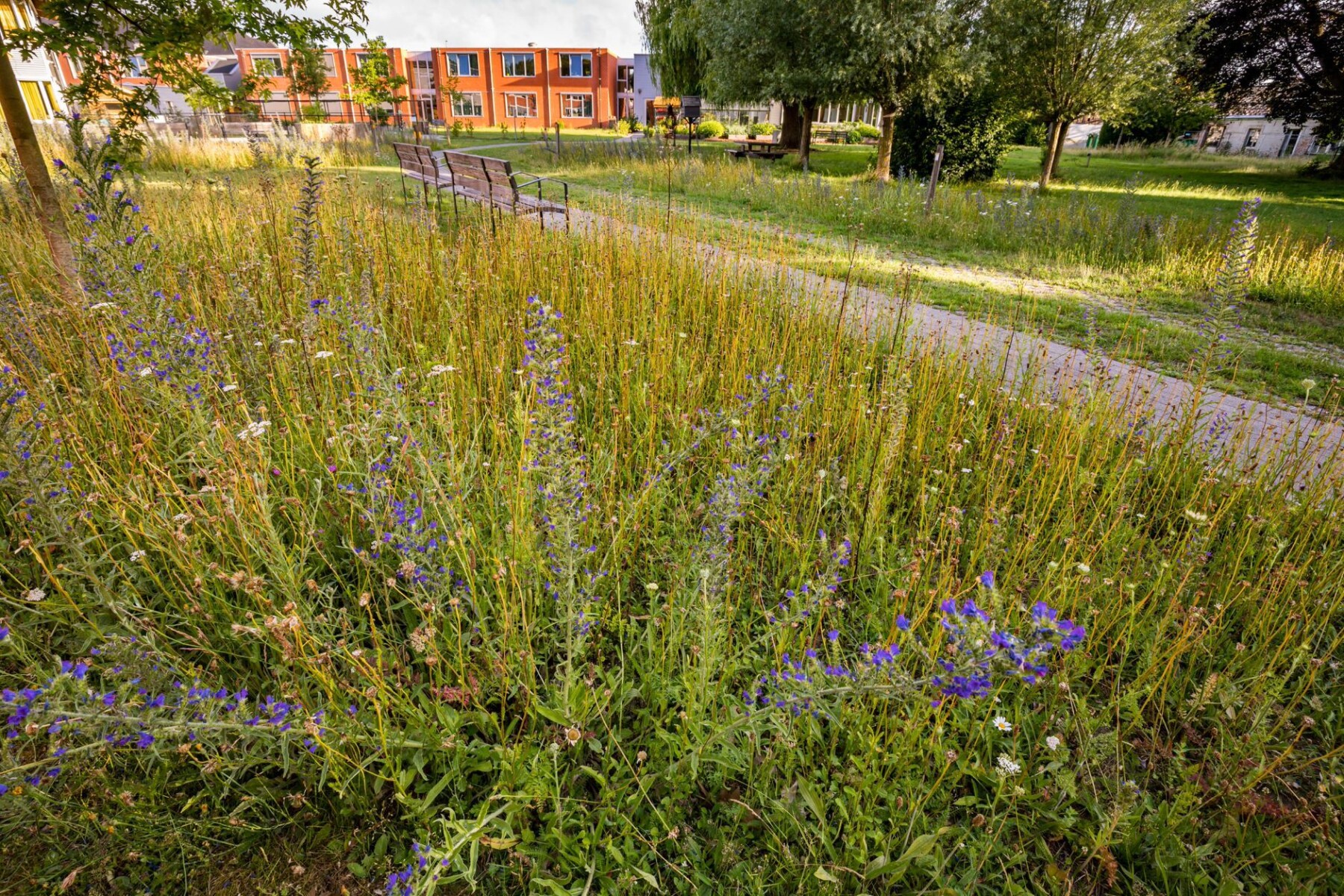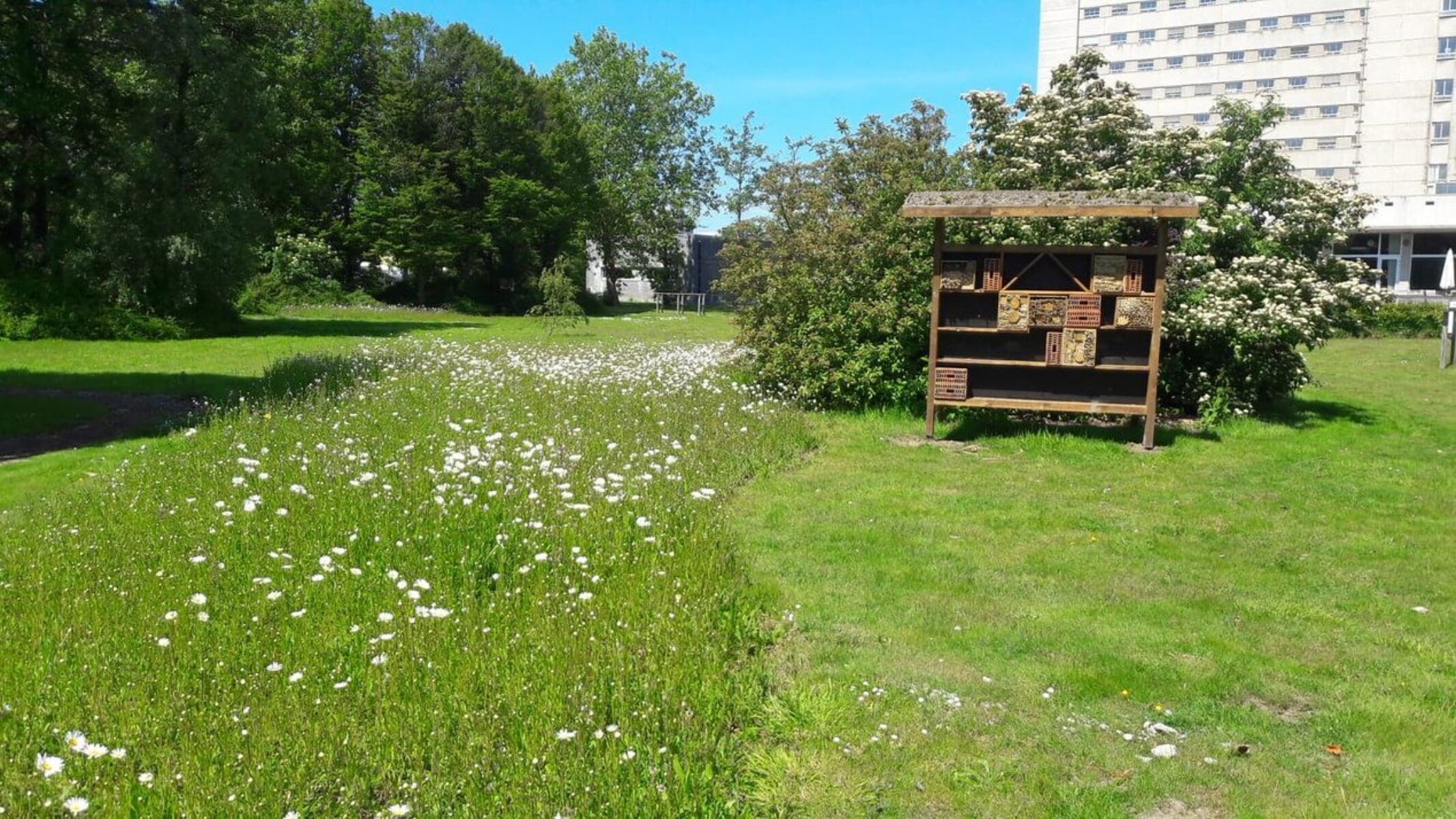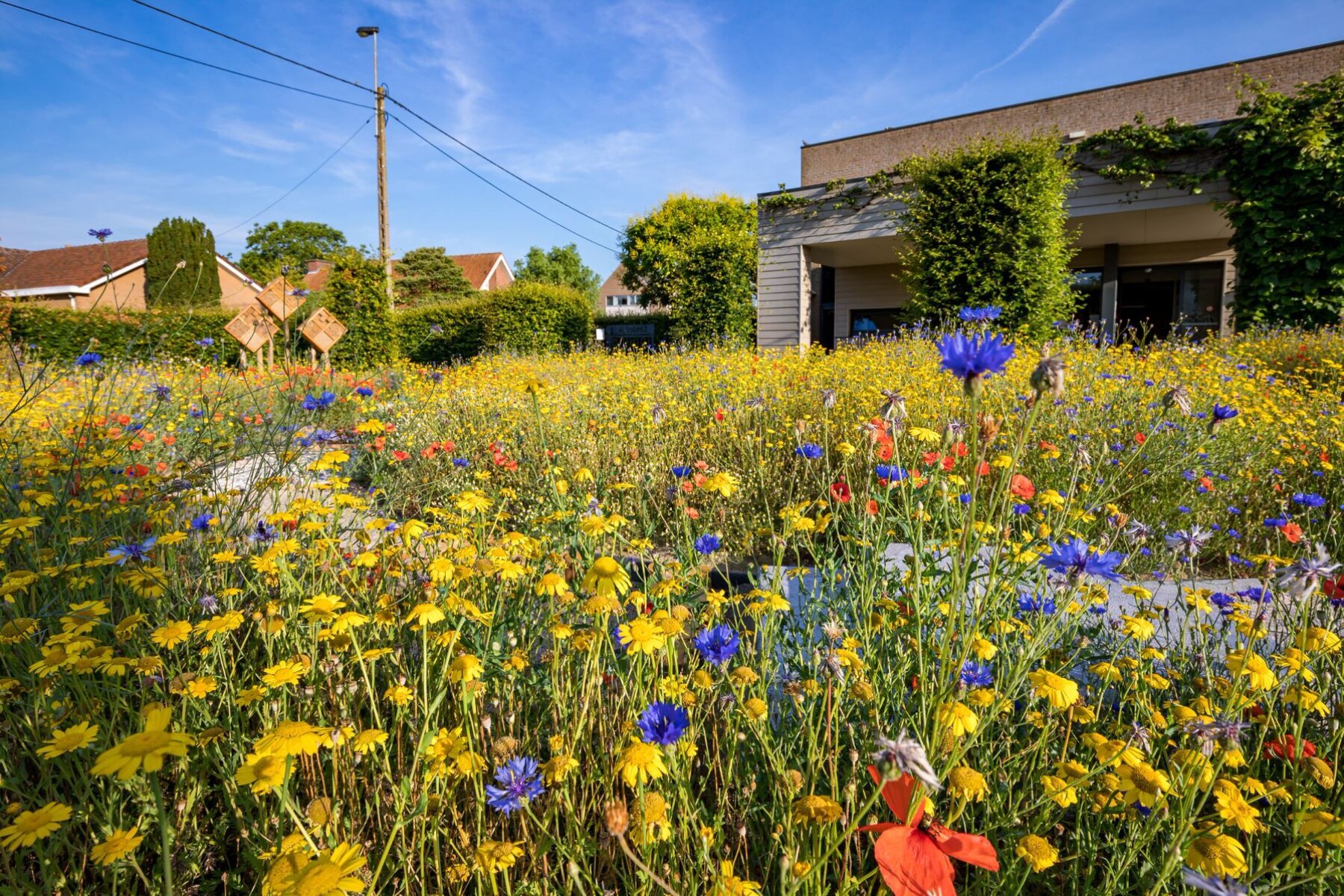Over the past two decades, the scientific literature has provided overwhelming evidence that greenery has positive effects on people's health and well-being. Being able to perceive and have contact with greenery reduces stress, increases attention, raises the pain threshold and appears to speed up healing. In Flanders, healthcare institutions make little or no explicit use of this knowledge to improve the quality of care. However, a well-designed green environment around care centres offers opportunities to both improve care and encourage interaction between those in need of care and society. In this respect, the restorative capacity of green space appears to be related to the biodiversity of green space. However, in our intensively used Flanders, biodiversity is under severe pressure. Gardens can play an important role in boosting biodiversity on a landscape scale and creating stepping stones for species migration, for instance in response to climate change. Nature-based solutions such as biodiverse restorative care gardens can help address the societal challenges of the future in highly urbanised regions such as Flanders, thus representing a win-win for both the care sector and the nature sector.
To arrive at concrete recommendations for practice, however, knowledge and a multidisciplinary approach are needed. Through questionnaires and the creation of pop-up garden elements, together with students and partners, we want to (i) map what is currently present in terms of biodiverse greenery around care centres, (ii) examine what the therapeutic effect of biodiverse greenery can be and (iii) design green concepts for biodiverse restorative care gardens technically and therapeutically. Biodivers care greenery is a research project of the research centres AgroFoodNature, 360°Care and Welfare, EQUALITY Research Collective and Futures through Design.




Biodivers zorggroen
Willaert Boomkwekerij
Agentschap voor Natuur en Bos
vzw Eindelijk, projecten NAH
UZ Gent
Woonzorgcentrum Het Heiveld
Velt vzw
Natuurpunt (CVN)
Universiteit Gent, Faculteit Bio-ingenieurswetenschappen, Vakgroep Omgeving ForNaLab
OCMW Gent


